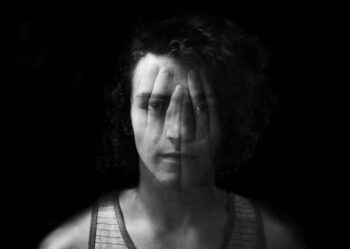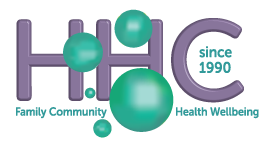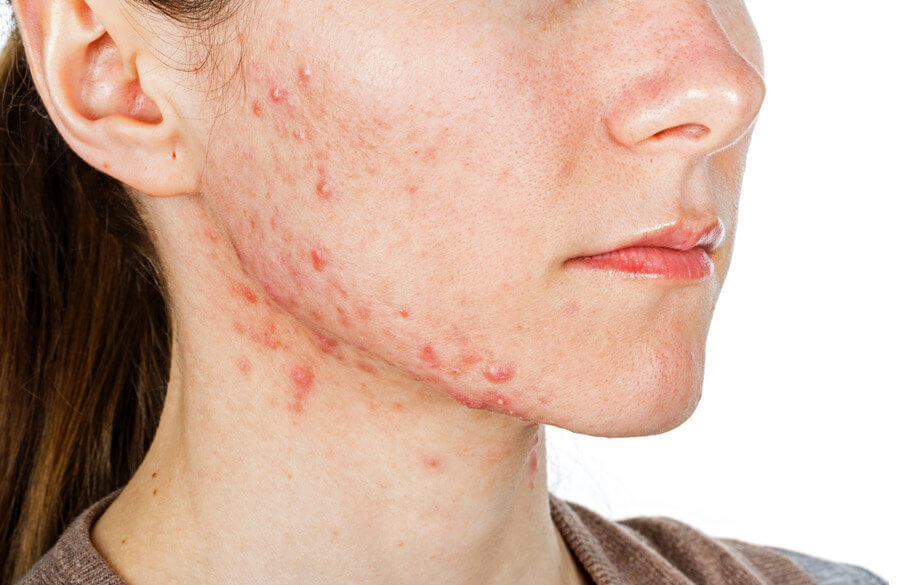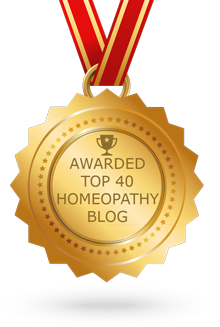Most people develop mild acne, it affects 80% of teenagers but for some it can continue into adulthood. Acne that develops after teenage years is referred to as ‘adult acne’. Unfortunately, acne can cause many emotional issues and for teenagers can affect their confidence and interaction with
others
.:
Hormonal changes during puberty leads to increased estrogen in girls and androgens (including testosterone) in both boys and girls, which increases oil production in the skin. Acne is also worsened by stress, as this increase’s perspiration and oil production.
Some women can be affected with acne after stopping the hormonal birth control. When the anti-estrogen and anti-androgen effects of the birth control are no longer in place the body responds by over producing these hormones, and it may take several months for the synthetic hormones to be metabolised and excreted from the body.
What is Acne?
- Pus – dead skin cells, sebum and bacteria
- Pimples – clogged pores, blackheads and whiteheads
- Pustules – raised lesions and pus
- Cystic acne – ruptured cells around hair follicles
How Does Acne form?
Pores clog with a mixture of dead skin cells and sebum, oil then collects behind the clogged pore which causes bacteria, naturally present in the skin, to multiply. The body recognizes this as an infection, so sends red and white cells to fight the infection. Swelling, redness and inflammation are the end result.
Which Bacteria Causes Acne?
- Staphylococcus Aureus
- Propionibacterium
- Cutibacterium Acnes
However, resistant strains have been shown to be increasing. Bacteria are able to change, perpetuate or adapt to the abnormal oil production and inflammation of the acne pores.
Medical Treatments for Acne
- Benzoyl Perioxide. Antibiotic lotion or gel. Side effects can cause skin peeling, redness and sensitivity.
- Salicylic acid. Deep cleaning lotion or mask. Side effects can be redness, soreness and sensitivity.
- Retionol. Topical treatment to increase skin cell renewal. Side effects can be redness, burning and sensitivity.
- Antibiotics. Tetracyclines kill bacteria. Side effects can be nausea or other GI issues or antibiotic resistance (some cases of acne have resistant strains of bacteria).
- Accutane. Oral medication derived from Vit A to reduce oil, inflammation and bacteria. Some side effects in can include depression, very dry and cracked skin.
- The Combined Pill. Oral contraceptives suppress estrogen and androgens. Yasmin is currently prescribed (replaced Dianette which was withdrawn). Side effects can be bloating, breast tenderness, spotting or fluid retention.
- Spironolactone. Oral medication to block androgens and reduce sebum. Side effects can be irregular periods, breast enlargement and pain, increased urinary frequency.
Lifestyle factors that can affect acne sufferers
Bodyweight, lack of sleep and diet all contribute to acne but doesn’t cause it directly.
Cow’s milk is an underlying issue, as it can trigger ear, throat and chest infections in early childhood, leading to frequent courses of antibiotics and painkillers, which affect the GI and skin.
Hormonal acne in teenagers can also be due to imbalances such as:
- Poor liver metabolism
- Poor gut health
- Stress and adrenal dysfunction
- Blood sugar imbalance
- Poor sleep
Liver Congestion
Pharmaceutical drugs, petrochemical based ‘beauty products’, party drugs and alcohol are major causes of liver congestion. When the liver is sluggish, the body can’t move toxins to the intestinal tract and colon to eliminate them effectively. This leads to toxins moving back up into the lymphatic system and reversing back into the bloodstream.
The body will try to eliminate through the bloodstream, into the kidneys and out through your urine. Toxins often find their way up to the skin through the bloodstream and get trapped there – causing flare-ups and break outs.
Gut health aids the elimination process to work properly, however, if the liver is sluggish the gut cannot eliminate effectively.
Homeopathic Remedies for Liver and Gallbladder Support
Herbs containing berberine are useful for pustular skin eruptions. It is found in the following remedies:
- Hydrastis (Golden Seal)
- Berberis Vulgaris (Barberry)
- Berberis Aquifolium (Oregon Grape)
Chelidonium is another remedy that can assist the liver, depending on the type of acne and age.
Those with issues with the liver/gallbladder will get acne outbreaks on the temples and between the eyebrows. This may often flare up with inflammatory, foods such as seed oils in processed and fried foods. In this instance a remedy to support the liver and gallbladder is recommended, plus a careful look at the diet.
Diet and skin
Eating more vegetables, especially salad, and if possible organic. Organic meat, eggs and as well as wild fish (not farmed, particularly salmon). The reason for this is that farmed meat, eggs and fish contain antibiotic residue which affects the gut.
Supplements to help
There are two supplements that have been shown to help:
- Zinc Piccolinate 30mg daily
- Probiotics – to be taken initially for approximately 3 months.
Some people have found that Biotin can make acne worse, so avoiding taking products that contain this would be advised.
Skincare
It is advisable to wash the skin properly twice a day, including after exercise, and to make sure that make-up is removed properly.
There are two Neal’s Yard products that can help, or look for products which are natural.
Palmrosa facial wash (twice daily)
Palmrosa skin polish (twice weekly)
Homeopathy help for acne
A trained homeopath would need to be consulted before deciding on a remedy, however, I have listed some remedies below, and why these would be chosen:
- Chelidonium (to support liver). Acne with red pimples on different parts of the face. Inflamed pimples on the chin and cheeks.
- Berberis Aquifolium (to support liver). Acne with dry, rough, scaly skin. Eruption on scalp, extending to face and neck.
- Sepia (acne after coming off hormonal birth control), hormonal adult acne. This remedy helps to calm excess androgen hormones, and the acne can be worse before the period.
- Nux Vomica. This can help young adults with acne, who have unhealthy lifestyle issues. The acne may form into boils or abscesses. Consumption of alcohol may be in excess, and they often eat too much cheese or fatty food. Sometimes there can be a history of continued medication.
- Pulsatilla. Acne from puberty with pustular spots. For girls this remedy can calm excess estrogen.
- Kali Bromatum. Acne from puberty which is bluish-red and can itch. In girls the acne can be worse before periods and they get pimples on the face, cheeks, forehead, chest, and the pustules can leave scars.
- Natrum Muriaticum. This remedy can help adult acne with oily skin.
- Hepar Sulphur. Acne in the young, it can be painful, and eruptions can appear on the neck in the form of boils and abscesses.
- Silica. Acne in the young which takes the form of boils or pustules, which can be long lasting.
- Baryta Carbonica. Acne in the young who have a history of tonsilitis. The acne can be slow healing.
- Sulphur. Acne which breaks out easily, every injury can suppurate and looks red and unhealthy.
Homeopathy is a gentle, but kind approach to treating skin issues. It can sometimes be a few months before a difference is seen, which is why it is important to take photographs both before and during treatment to notice ongoing difference in the skin quality.
- Weight Loss and Glucose Management: It’s not just what we eat but how we eat - 19/06/2024
- Getting on top of your cholesterol management - 12/04/2024
- Discover the Power of Homeobotanicals - 18/03/2024




